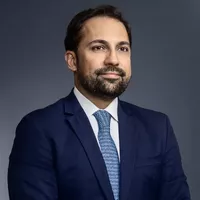- in United States
- within Wealth Management and Intellectual Property topic(s)
Amidst the recent uptrend of climate litigation cases in Brazil, the Brazilian Supreme Court has scheduled for March 30, 2022 a trial session covering several different lawsuits involving the protection of the environment and effects on climate change. This is an important milestone for the Brazilian climate litigation landscape, as this is the first time a Supreme Court session will be exclusively dedicated to climate-themed cases.
The claims currently submitted to the Supreme Court range from requiring the Government to adopt concrete measures against deforestation due to its alleged lack of action – as argued in case no. ADO-54 – to reactivating and reinstating civil society in the governance structure of national funds dedicated to environmental and climate protection – as claimed in cases no. ADPF-651 and ADO-59 in connection with the National Environment Fund and the Amazon Fund. In total, seven cases have been selected for the March 30 trial session.
The highlights for the trial session mainly include case no. ADPF-760, which requires the Government to resume the implementation of the Action Plan for Prevention and Control of Deforestation in the Amazon, also linked to the purported Government's lack of action against deforestation, and case no. ADO-59, which seeks to reactivate the Amazon Fund – a financial reserve that receives donations for investments in actions of preventing, monitoring and combating deforestation, while promoting the environmentally responsible use of the Amazon Forest resources. Case no. ADI-6148 is also worth mentioning, as it seeks to revoke an allegedly permissive directive from the Brazilian National Environment Council (CONAMA)–Resolution no. 491/2018, which supposedly provides for air quality standards that are insufficient for protecting the environment and people's health.
Lastly, the Supreme Court is also expected to decide cases no. ADPF-735 and ADI-6808, both disputing pieces of federal legislation. While ADPF-735 requests the court to annul a Federal Decree that allowed the use of military forces in environmental inspections, arguing that such militarization means seizing the authority of environmental agencies, ADI-6808 seeks to revoke federal legislative provisions that allows environmental licenses to be issued automatically in certain circumstances.
The Supreme Court's decision to soon rule on these issues is significant for the development of climate litigation in Brazil, while reinforcing global trends of bringing climate claims to courts. The outcome of these imminent rulings are to be watched closely, as they should make the first precedents on how the Brazilian Supreme Court understands climate change ought to be addressed by the Brazilian Government, which may have implications for private entities as well – after all, as seen in other jurisdictions, climate lawsuits against companies are just one step away from climate lawsuits filed against governments.
Visit us at Tauil & Chequer
Founded in 2001, Tauil & Chequer Advogados is a full service law firm with approximately 90 lawyers and offices in Rio de Janeiro, São Paulo and Vitória. T&C represents local and international businesses on their domestic and cross-border activities and offers clients the full range of legal services including: corporate and M&A; debt and equity capital markets; banking and finance; employment and benefits; environmental; intellectual property; litigation and dispute resolution; restructuring, bankruptcy and insolvency; tax; and real estate. The firm has a particularly strong and longstanding presence in the energy, oil and gas and infrastructure industries as well as with pension and investment funds. In December 2009, T&C entered into an agreement to operate in association with Mayer Brown LLP and become "Tauil & Chequer Advogados in association with Mayer Brown LLP."
© Copyright 2020. Tauil & Chequer Advogados, a Brazilian law partnership with which Mayer Brown is associated. All rights reserved.
This article provides information and comments on legal issues and developments of interest. The foregoing is not a comprehensive treatment of the subject matter covered and is not intended to provide legal advice. Readers should seek specific legal advice before taking any action with respect to the matters discussed herein.
[View Source]


